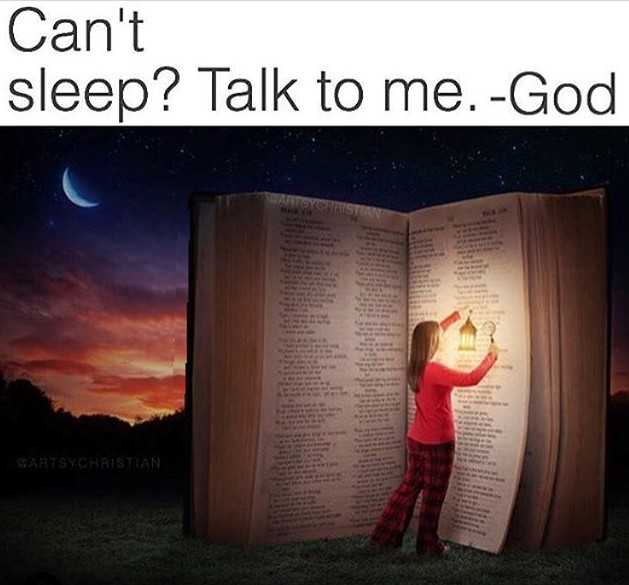

Just as a computer needs to be rebooted regularly when it becomes overloaded, our brains need to be restarted by a good night’s sleep. But they also malfunction if not cared for properly. Our minds are similar to computers, with storage capacity, memory, and untapped potential. Sleep also allows our minds to rest so that we can focus more clearly during our waking hours. We need to be continually reminded of our limitations and that we are completely dependent upon God for our very existence. Meeting these needs takes up much of our time and energy. Our physical bodies must be constantly replenished with food, water, oxygen, and sleep in order to continue functioning. Research demonstrates the behavioral changes that occur when we are deprived of sleep, but science cannot answer the question “Why?” One possible explanation for our need for sleep is that sleep reminds us that we are creatures, not the Creator. Theories abound, both scientific and fantastical, about why we sleep. Verses such as Proverbs 6:9, 19:15, 20:13, and 24:33 symbolize laziness as sleep. However, sleep, like all of God’s gifts, can be abused. Some times, God spoke to people while they slept through dreams and visions (Genesis 20:3 31:24 1 Kings 3:5 Daniel 7:1). We know that sleeping is part of being a healthy person because Jesus had to sleep just like we do (Luke 8:23 Mark 1:35).

Sleep is sometimes portrayed as a gift from God in passages such as Proverbs 3:24 and Psalm 4:8. The Bible speaks of sleep both positively and negatively. He established the pattern of regular rest when He set aside the Sabbath day for the Jewish people (Exodus 31:16 Leviticus 23:3). God built the concept of rest into His creation (Genesis 2:2). The first biblical mention of sleep is found in Genesis 2:21 when God placed Adam into a deep sleep and formed Eve from one of his ribs. Sleep, in general, is found in several mythologies, such as the one told in the Babylonian poem of creation, where Apsû, the progenitor of the gods and sovereign of deep water, is made fall into deep sleep by Ea, who takes possession of the abysses.Ī curiosity: “Nanna” was the Sumerian name of the god of the Moon.Since God created everything, He also built into us the need for sleep.

In India, the “Lord of sleep” is Shiva, whose name derives from “Shin”, which actually means sleep. Another story is the one where Bodhvild “warmongering woman warrior” is seduced by Volund in her sleep. Yet, sleeping is at the center of suggestive narrations such as the one of Brunhilde, daughter of Wotan, who is awakened by Siegfried from the magic sleep into which her father had induced her. The Scandinavians, whose cosmogony is dominated by Wotan, have no god of sleep.

The legend says that – once that she had fallen in love – her singing made the whole Ireland sleep for 3 days and 3 nights. In the Celtic mythology, the Goddess of sleep is Caer Ibormeith. Also Hermes, the messenger of the gods, has magic powers on the sleep, as Endymion has the ability of sleeping forever.įor the Ancient Romans, the god of sleep and dreams was called Somnus. On the other hand, Hypnos, who – in the iconography – is a naked young man with a winged head, was so powerful that he could put to sleep the gods themselves. Morpheus is the most important brother and is considered the “shaper of dreams”: the one who makes the dreams take shape. Morpheus and his brothers are the “Oneiroi” and regulate the dreams of the mortals. Morpheus, with Momus, Ikelus, Phobetor and Phantasos, is one of the children of the Greek good of sleep, Hypnos (Ὕπνος). No, unlike what people think, Morpheus is not the god of sleep.


 0 kommentar(er)
0 kommentar(er)
